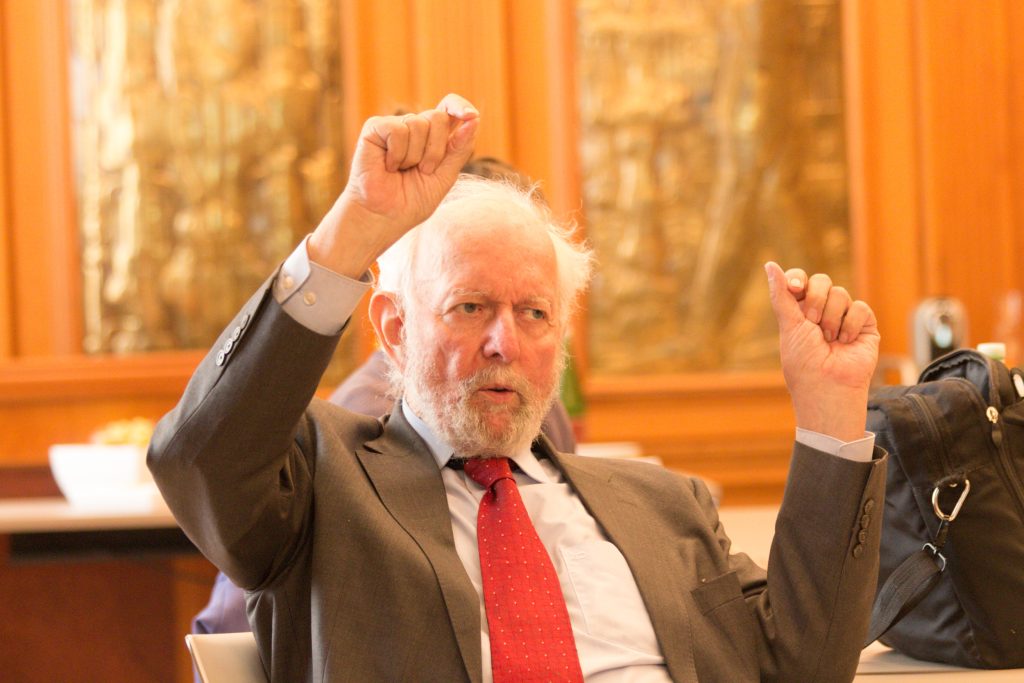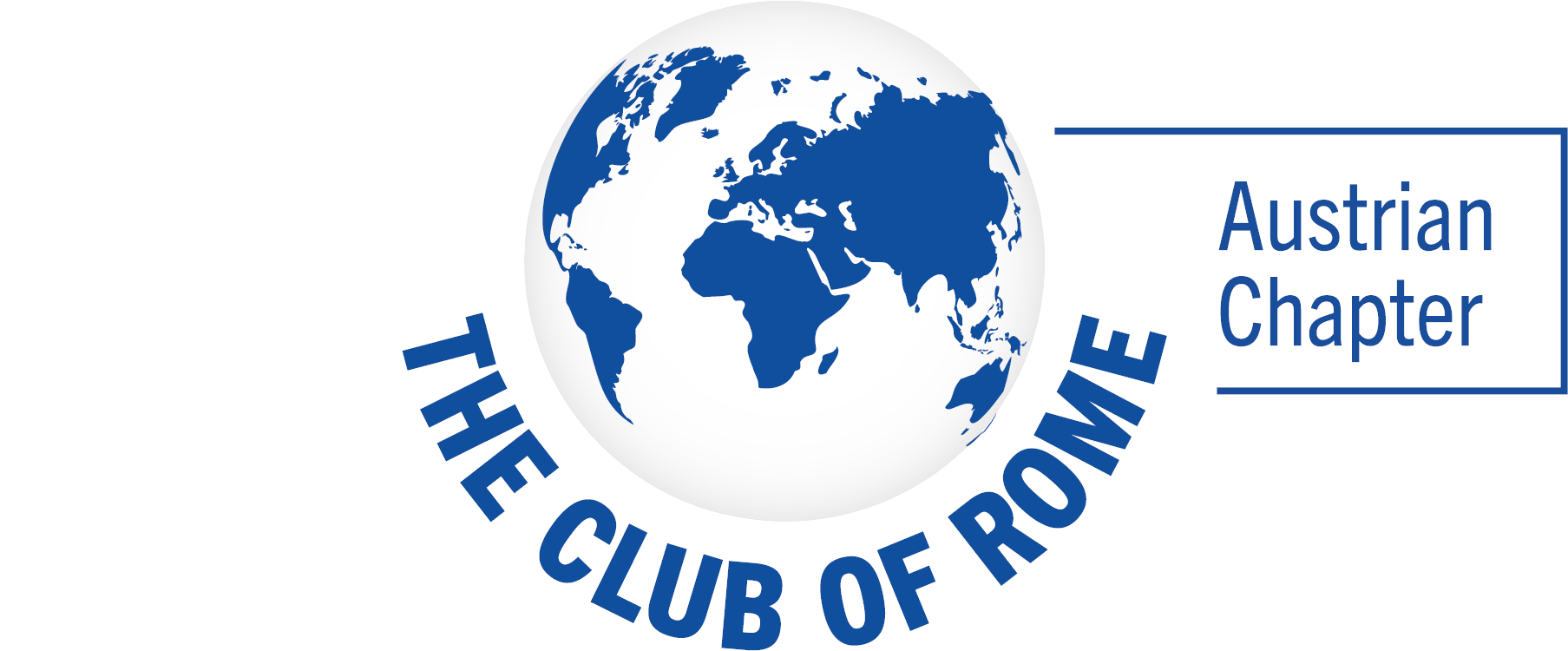10. May 2022, by Dr. Friedrich Hinterberger (Vice President of the Club of Rome – Austrian Chapter)
On May 2, 2022, a workshop with Ernst Ulrich von Weizsäcker took place at the Oesterreichische Nationalbank in the run-up to the anniversary conference “50 Years ‘Limits to Growth'”. Fritz Hinterberger, Vice President of the Austrian Chapter, together with Nathalie Spittler (BOKU) and Meike Bukowski (University of Salzburg) presented the project Wellbeing – a good life in a world full of crises.
Scientists and artists discussed the state of the project and its (further) development. Meike Bukowski presented the role of the project in the UniNEtZ project, Nathalie Spittler the methodological framework, and Fritz Hinterberger the current state of the project.

Ernst Weizsäcker, formerly co-president of the international Club of Rome, emphasizes that “the goal to redefine GDP has to be approached systemically.” But he points out the key challenge: sustainability is a global problem, and any measurement of progress at the regional or national level must therefore show its contribution to the world’s common good. Otherwise, it comes again down to an “ecology versus economy” dispute.

The well-known triangle of economic, social, and economic sustainability is a “tissue of lies,” according to Weizsäcker. The social component, in particular, is usually misused: the company kindergarten is used as an argument to compensate for weaknesses in climate protection. The business economist René Schmidpeter agrees with him: after all, the planetary boundaries represent a “single bottom line”. Finally, Weizsäcker adds, this also applies to the well-known picture in which the 17 SDGs are placed next to each other on an equal footing as “tiles” and prefers a representation that presents the “ecological” SDGs 13, 14, and 15 as the basis for everything else.
Weizsäcker agrees with the “good” approach of a citizens’ council, in which representatively selected citizens take part in a participatory process instead of often self-appointed “stakeholders.” This was echoed by journalist and entrepreneur Rainer Schultheis, who is with his company SAPHENUS a pioneer and the first user of the concept presented: “Stakeholders must become sustainability researchers,” says Schultheis, “especially the younger generation!”
Social-ecological economist Anke Schaffartzik from the Central European University, like Franz Fehr from the University of Natural Resources and Applied Life Sciences and chairman of the UniNEtZ Council, criticized the uncritical use of terms such as GDP or “consumption”´. They say that the question of distribution must also be asked: “I can live in a country with a low GDP but belong to the elite with a high income,” said Schaffartzik. Both spoke in unison in favor of redefining the “good life.” “What is wellbeing?” also asked artist Simona Koch, and Gerda Palmetshofer added that it is also about “omission.” Lisa-Marie Weidl, a student at the University of Applied Arts Vienna, also refers to the diverse forms of expression of art, while graphic designer Christian Schienerl emphasizes the topic of “communication” and also “scalability”. Martin Hoffmann from the Austrian Chapter emphasizes that the achievement of goals by individual companies and regions must be measurable as a contribution to the overall goals.
This is also important to Max Fuchslueger from Fridays for Future, who says: “Universities could do a lot more”. Creating a space for this is also called for by Dennis Kacetl, youth spokesman for the Gemeinwohlökonomie and board member of the communication agency (cooperative) cooppa, which is working on communicating the concept primarily to companies. Bernhard Bergmair pleads for putting concrete issues, such as the measurement of planetary boundaries, out of question, Just like Weizsäcker, he pleads for a strong role of politics, for example in the issue of “eco-taxes”. Helwin Prohaska of the association “Energiewende Linz” also agrees.
Alexandra Wegscheider-Pichler, who is responsible for sustainability indicators at Statistik Austria, urges caution, especially when it comes to aggregation. On the other hand, a list of 200 indicators “overwhelms everyone”. For subjective life satisfaction, there are “very stable indicators – even across different income levels.”
The project team thanked the attendees for numerous comments and inputs, and in particular for the support and appreciation. Much, they said, was already laid out in the concept (without having been included in the brief presentation). “Other things we will gladly take up,” promised Fritz Hinterberger in his closing statement.
Materials
The Wellbeing-Projekt of the Club of Rome – Austrian Chapter.
Präsentation von Fritz Hinterberger, Nathalie Spittler und Meike Bukowski (pdf).
Kurzdarstellung des Projekts (2 Seiten/pdf).
“So reicht das nicht” – das neue Buch von Ernst Weizsäcker.
